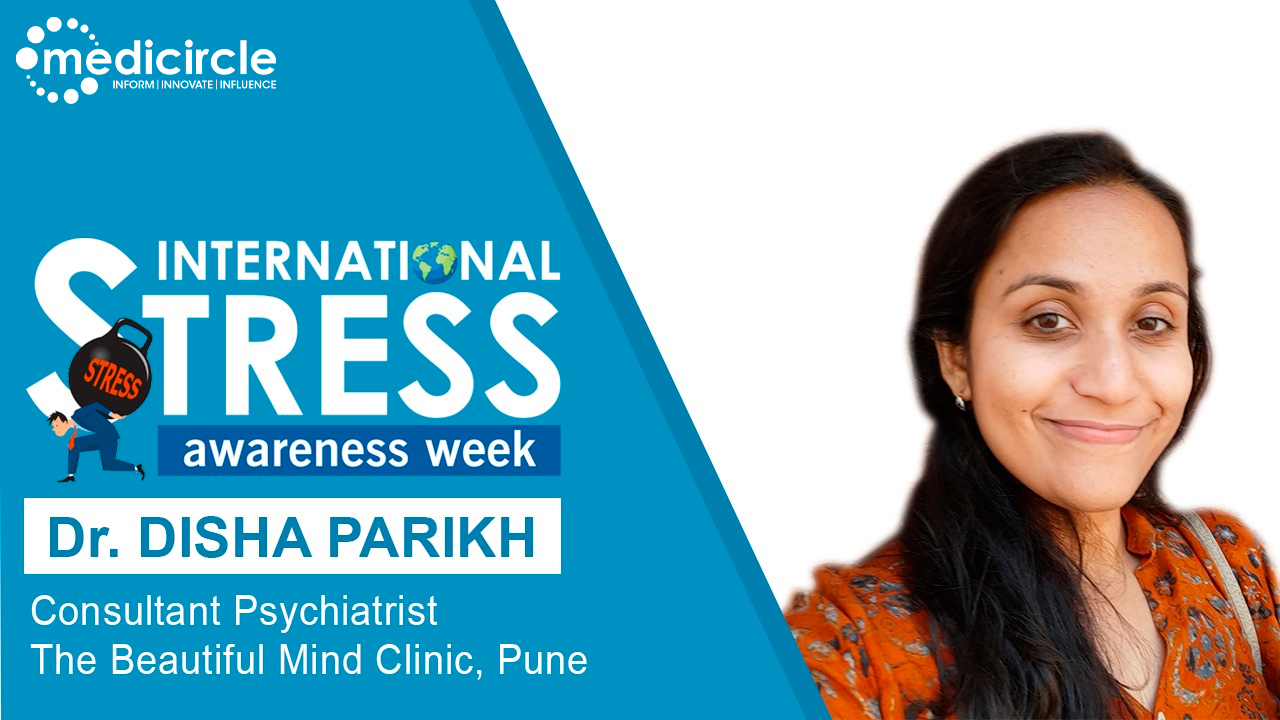The feeling of being overwhelmed or unable to cope with mental and emotional pressure is stress. Stress is our body’s response to pressure. Many different situations or life events can cause stress. Sometimes, this stress response can be useful: it can help us push through fear or pain. However, too much stress can cause negative effects. Long term, this can affect our physical and mental health.
As per the result of a large-scale survey conducted across India in 2019, young adults between the age of 20 and 29 years of both genders were the most stressed in the country. The major cause of high-level stress among young people are peer pressure, pressure to succeed in academics or work, and irregular routines. 50% of Indian professionals have reported that an uncertain future is their topmost source of stress as was revealed in a recently concluded survey by The7thFold, a boutique HR and Wellbeing firm.
Every year, the world celebrates International Stress Awareness Week from 1st to 5th November. The day encourages people to sit back, unwind and embrace peace. Awareness about this become even more significant this year due to the tough times people across the world have gone through in the COVID-19 outbreak. We at Medicircle are conducting International Stress Awareness Week Series wherein we will be featuring experts in this field to understand and create more awareness about the effects of stress.
Dr. Disha Parikh is currently working as a consultant psychiatrist at The Beautiful Mind Clinic, Pune. She has 8 years of clinical experience overall with an avid interest in research in various fields of psychiatry. She is a Psychiatrist with a keen interest in working in Women’s mental health, Child mental health, Relationship counseling, and sexual health.
She is certified in positive psychiatry, psychological first aid, and chronic pain management. She is currently training to become a Gottman-style relationship therapist. She has taken various stress management and holistic health seminars for women’s mental health.
What is Stress?
Dr. Parikh begins, "In our daily life, we only use the word stress to highlight how stressful our life is. It is usually used to showcase negative emotions. This is a misconception."
"Stress can be defined as the physical and emotional reaction to the environment. Sometimes having stress is necessary. For example, hunger is a type of stress. If we don't get hunger pangs we wouldn't be motivated enough to eat. But if this stress continues then it turns into distress. This is the type of stress that needs to be managed."
How does stress affect us?
Dr. Parikh explains, "If stress is chronic or longtime, then it increases the presence of stress hormones in our body. Stress hormones or cortisols then direct our body's resources in dealing with a stressful situation. This results in the body neglecting other things like nutrition and digestion."
"It also affects your immunity, blood flow and other bodily processes. Its emotional impact is that stress results in burnout. Your eating and sleep patterns can get disturbed. Your mood becomes more cranky."
Can stress turn fatal?
Dr. Parikh mentions, "Yes. Repeated exposure to stress can cause severe harm physically. The gut is closely connected to stress. Being under stress can cause one to develop acidity. This can then put a strain on your heart, lungs and other organs."
"You can end up with weaker immunity, blood pressure, diabetes and other lifestyle diseases. On the other hand, stress can decrease your productivity at work. It can lower your mood and make you inactive to do anything. It can cause one to develop anxiety, depression and suicidal nature."
"Stress can manifest into chronic physical diseases and mental diseases as well."
What to do once you realize you have stress?
Dr. Parikh advises, "With the growing awareness on mental illnesses, even the doctors are being aware of psychosomatic illnesses. The mind and the body are deeply connected. One affects the other and wise versa.”
“One needs to pay attention when these signs pop up. Are you feeling physical pain when work stress increases? If you find no cause but still feel pain, then you need to consult a mental expert.”
How to deal with stress?
She says, “Stress management is an important element. One needs to focus on 2 things. One is resilience building. The flood of stress is going to inevitably come. A great strategy against this is to build up our resilience against this. For this maintain good relationships with your family and friends. Be physically active. This releases happy hormones. Maintain a good sleeping schedule and a balanced diet.”
“The next thing is that when stress does come, you need to cope with it effectively. There is adaptive coping and maladaptive coping. For the latter you take your anger out on others, don't eat and sleep well and resort to smoking and alcohol. Instead use positive things like humor, thinking positively, and solving the problems. If you find this burdensome, seek help from your family, friends and even mental health professionals.”
(Edited by Priyal Shah)

 Stress is an inevitable part of our life. Here are 2 ways in which stress can be dealt with as recommended by a psychiatrist.
Stress is an inevitable part of our life. Here are 2 ways in which stress can be dealt with as recommended by a psychiatrist.



















.jpeg)










